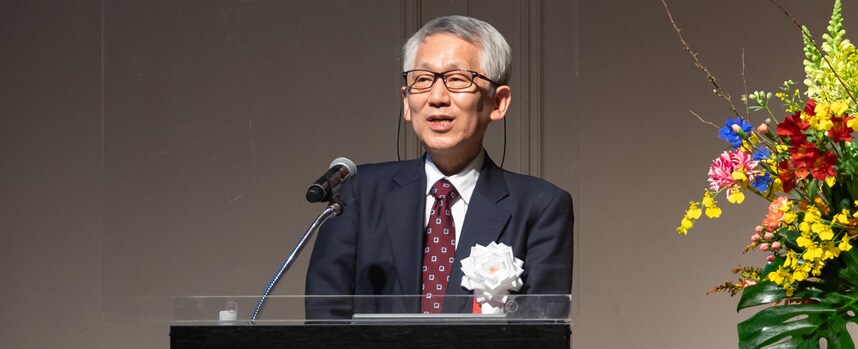Vol.10 Issue 2 / Latest topics 2Celebrating 20 Years of Koichi Tanaka
Mass Spectrometry Research Laboratory
The Koichi Tanaka Mass Spectrometry Research Laboratory was established on January 1, 2003 with Koichi Tanaka, who received the Nobel Prize in Chemistry in 2002, as General Manager. Since then, the laboratory has engaged in research into structural analysis methods for biomolecules,and the development of next-generation mass spectrometry systems, with the aim of ultra-early detection of diseases from blood droplet samples. 2023 marks the 20th anniversary of this laboratory.
Initiatives by the Koichi Tanaka
Mass Spectrometry Research Laboratory
With matrix-assisted laser desorption/ionization mass spectrometry(MALDI-MS) as the core technology, the laboratory engages in early detection of protein related diseases, research into structural analysis methods for sugar chains and other biomolecules, and the development of next-generation mass spectrometry systems
While maintaining contact with the world at large, the laboratory is producing results, which in turn have an impact on the world at large,causing a chemical reaction that fosters new possibilities for mass spectrometry.The aim is to develop science and technology and contribute to society by functioning as a site for collaborative creation sparked by this virtuous cycle.
20th Anniversary Lecture
A 20th anniversary lecture was held in Kyoto in February of this year.A number of researchers participated including Professor Shinya Yamanaka at Kyoto University, who received the Nobel Prize in Physiology or Medicine in 2012, and who was invited as a special lecturer. In the Tanaka Fellow commemorative lecture, he described the history of the laboratory, which has resulted in the publication of approximately 150 research articles over a 20 year period, and gave examples of the research.
The Koichi Tanaka Mass Spectrometry Research Laboratory, which was started to commemorate Tanaka’s Nobel Prize win, continues to take on challenges both in terms of facilitating research activities, and promoting and popularizing science and technology.
